AlexRaths/iStock/GettyImages
Amino acids are the building blocks of protein that help form muscles and other body tissue. Essential amino acids are those that must be consumed every day to support optimal health. Cooking food destroys some essential amino acids they contain, but the negative effects vary depending on which cooking method is used. Short cooking times, and incorporating the cooking liquid into the finished dish, help to preserve the essential amino acids in most foods.
Essential Amino Acids
Twenty different amino acids are necessary to build protein tissue and aid in metabolism. Ten amino acids can be manufactured by the human body. The other 10 -- arginine, histidine, isoleucine, leucine, lysine, methionine, phenylalanine, threonine, tryptophan and valine -- are called essential amino acids. These amino acids must be consumed daily in food, as the human body can neither produce them nor store them. Meat, fish, eggs, dairy products, whole grains, beans and vegetables all contain protein and varying levels of these 10 essential amino acids.
Losses During Cooking
Destruction of essential amino acids varies between different amino acids as well as between different cooking methods. Levels of the essential amino acid lysine dropped significantly in sweet potatoes that were canned or dehydrated, and not as severely in sweet potatoes that were baked, according to a 1982 report published in the Journal of Agriculture and Food Chemistry. Methionine levels dropped in sweet potatoes that were dehydrated but did not drop much in those which were canned or baked. Raw flageolet beans contained higher quantities of amino acids than those that were cooked, according to researchers from the Agricultural University of Krakow, Poland, but short cooking methods preserved more of the essential amino acids than sterilizing the beans through canning.
Cooking Liquid
Some of the essential amino acids lost in cooking may not totally degrade, but rather be leached into the cooking liquid. Some amino acids and other nutrients leach from sweet potatoes into their surrounding syrup during the canning process. More amino acids are retained in a traditionally cooked potato stew than in potatoes that were fried or boiled, according to researchers from the College of Agricultural Studies at the Sudan University of Science and Technology. When the syrup or broth in which food items are cooked is consumed along with the food, such as in stew, soup or canning syrup, the essential amino acids and other nutrients which have leached out during cooking continue to provide their healthful benefits to the dish.
Overall Benefits
Cooking meats in broth releases amino acids that convey positive health effects. This could help explain the cold-fighting properties of chicken soup. Some essential amino acids are also concentrated in the food product when cooking reduces the food's mass, such as with canned sweet potatoes which have higher concentrations of leucine than baked sweet potatoes. So those amino acids may not be "destroyed" because you cook something, but simply released during the process.
Related Articles

How to Cook Plantains So You Don't Have ...

Toxins From Reheating Cooked Green ...
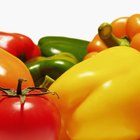
Nutrition Facts About Raw or Cooked ...

What Is the Difference in Black ...
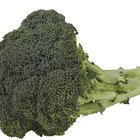
What Vegetables Have Citric Acid?

Difference in Sugar Content of Sweet ...

What Is Agave Syrup?

How to Steam Vegetables in an Electric ...

Does Deep-Frying Vegetables Rob Them of ...

What Are the Dangers of Sauerkraut?

Which Vegetables Produce the Most ...

Health Benefits of Organic Foods Vs. ...
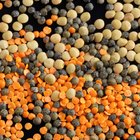
Beans Vs. Lentils

Does Boiling Fruits Destroy Vitamins?
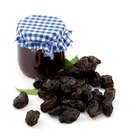
How to Can Jelly Using a Pressure Canner
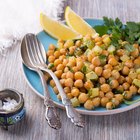
Garbanzo Beans on the Glycemic Index

Does Wrapping a Potato in Foil Help It ...
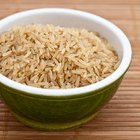
Food Sources of Betaine

Madagascar Vs. Tahitian Vanilla Beans

How Long Can You Cook Beef Ribs at 300 ...
References
- University of Arizona Biology Project: The Chemistry of Amino Acids
- "Journal of Agriculture and Food Chemistry"; Stability of Amino Acids During Cooking and Processing of Sweet Potatoes; Albert E. Purcell et al.; 1982
- "Food Chemistry"; Effect of cooking on tryptophan, basic amino acids, protein solubility and retention of some vitamins in two varieties of chick pea; Abdel-Hamid Youssef Abdel-Rahman; 1983
- "Food Chemistry"; Effect of cooking and sterilisation on the composition of amino acids in immature seeds of flageolet beans; Jacek Shupski; August 2010
Resources
Writer Bio
A freelance writer since 1978 and attorney since 1981, Cindy Hill has won awards for articles on organic agriculture and wild foods, and has published widely in the areas of law, public policy, local foods and gardening. She holds a B.A. in political science from State University of New York and a Master of Environmental Law and a J.D. from Vermont Law School.